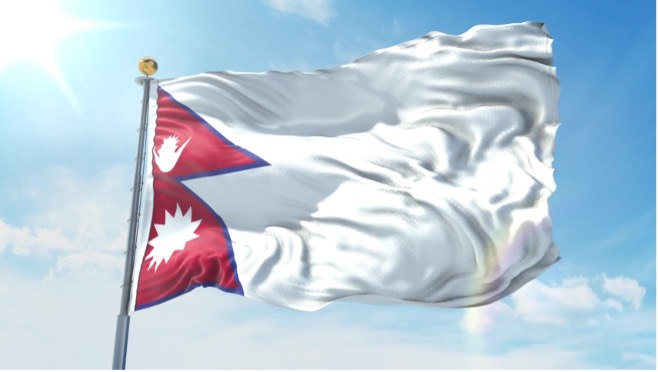
By now we’re all familiar with the term “fake news”. While perceptions of its magnitude and implications vary, any champion of democracy recognizes the importance of free speech and expression. And while the spread of misinformation and disinformation is not ideal, how do governments curb it without violating constitutional rights? Should accurate information or free speech be prioritized? If the former is chosen, who is the final arbitrator of truth?
Nepal is grappling with these questions ahead of its November parliamentary elections. Recently, the country has taken a concerning anti-democratic approach to the issue. The newly created ‘Press Office’ threatens free speech and expression across the country and echoes a warning of democratic backsliding.
On September 30th, Nepal’s Election Commission, constitutionally charged with conducting and monitoring elections, officially inaugurated the Press Office. The Press Office will combat misinformation in the media by deleting content and punishing those spreading information deemed unacceptable. The Office includes the Nepal Police Cyber Bureau, the Nepal Army, the Advertisement Board, the Press Council of Nepal, the Nepal Telecommunication Authority, and computer operators.
While it was within the Election Commission’s power to do so, many are asking – why not the Nepal Press Council? This is a reasonable question, as the Press Council is charged with monitoring the freedom of the press – the direct issue at hand. The answer may lay in the political nature of the Election Commission. The Chief Election Commissioner and subsequent Election Commissioners are presidentially appointed (with the recommendation of the Constitutional Council). Whereas the Nepal Press Council is an autonomous, independent governmental body. This leads to reasonable suspicion of political motives to suppress unfavorable speech and press. Is Nepal’s President Bhandari behind this move?
Further, why involve the army and police? The Chief Election Commissioner Thapaliya has said that the Press Office includes the army and police to deal with cybercrime cases. However, the jurisdiction of the Office falls well beyond cybercrime. The government’s use of police and military to threaten the press and social media users into compliance is a classic sign of democratic backsliding. Scholars Lust and Waldner explain that when identifying whether a democracy is backsliding, a key component is not only the presence of media and freedom of assembly, but civilian constraints on the armed forces. All three are absent here.
Why is the Press Office’s monitoring and punishment of misinformation hurting democracy? Nepal’s 2015 constitution, still in its infancy, guarantees freedom of speech and expression under Article 17. But the Constitution also explicitly states that these freedoms don’t prevent any future act with “reasonable restrictions,” i.e., national security. This caveat is dangerous in the hands of anti-democratic leadership. What are the bounds of a “reasonable restriction”? Any governmental body that acts against the Constitution, even through legal loopholes in fine print, threatens democracy. The Press Office’s monitoring, suppression, and punishment of free speech tiptoe around Nepal’s Constitution. Further, it breaks the critical accountability chain of citizens on their government. If the Election Commission, a political body, has discretion over what is considered “misinformation,” there are no limits to the political information they can suppress and hide.
Ozan Varol, Associate Professor of Law at Lewis & Clark Law School, coined the term “stealth authoritarianism” to explain the sly use of legal avenues for anti-democratic purposes. Democratic leaders that use stealth authoritarianism threaten their country’s state of democracy through six mechanisms. Two of these mechanisms are particularly relevant to Nepal’s case.
First, threatening libel lawsuits, seeking money for harmful statements, is an anti-democratic intimidation tactic used by governments to force the press to self-censor their content. It remains unclear whether the Press Office will pursue libel lawsuits or alternative avenues of punishment. Regardless, by punishing those spreading “unacceptable” information, the government is creating the same effect of self-censorship on official press and regular social media users.
Second, government surveillance laws and institutions have a chilling effect on civil liberties, such as freedom of speech, press, and assembly. They also allow authoritarian leaders and administrations to blackmail and silence political opponents and disapproving citizens. The Press Office already blatantly curtails civil liberties. Perhaps even more concerning, Nepal’s President Bhandari could use the Press Office to target opponents in the next election cycle.
While even the brightest scholars cannot assuredly predict Nepal’s future state of democracy, a glimpse of the recent past is telling. Before the Press Office’s inauguration, the media already faced authoritarian-like experiences. In a 4-week period between May 31st and June 27th of 2022, there were six documented incidents threatening free media. Editors, journalists, and camerapersons alike were detained, threatened, harassed, abused, and obstructed from reporting. Why? For reasons ranging from reporting on fires, poor waste management, social security allowance distribution, and even requesting information from the Infrastructure Development Office. These cases foreshadow the likely future implications of the Press Office on freedom of speech and democracy as a whole.

0 Comments